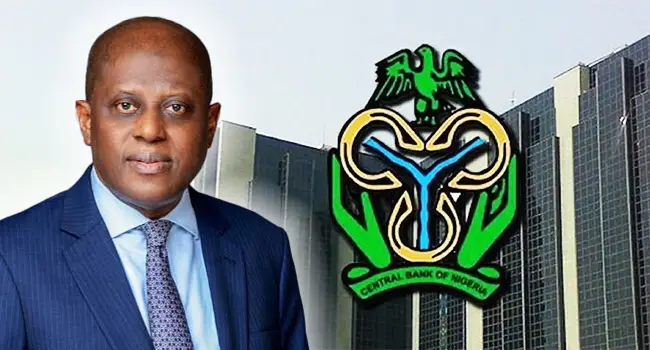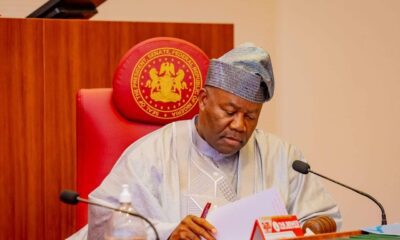Breaking News
Rising naira value: We’ll deal with racketeers, Presidency
As a result, the government and Organised Labour have been at odds for months over what the latter group claimed to be the government’s inability to ease the suffering of the populace. Labour further contended that, given the skyrocketing cost of living, the N30,000 minimum salary was no longer sustainable.

The President Bola Tinubu’s “multi-faceted approach to ridding the nation’s foreign exchange market of malign actors and sharp practices” is in line with the coordinated efforts of the Yemi Cardoso-led Central Bank of Nigeria to stabilise the naira, according to a statement released by the Presidency on Tuesday.
In addition, it promised to keep up the fight against racketeers and urged Nigerians to brace themselves for a major decline in the cost of necessities by the first quarter of 2025 due to a stronger currency.
Speaking in light of the recent actions taken by the central bank to stop the naira’s wild slide and restore the local currency to its fair value, Ajuri Ngelale, Special Advisor to the President on Media and Publicity, made these remarks.
Following the issuance of multiple circulars and orders by the CBN, the value of the local currency increased, rising from 1,900/dollar in late February to about 1,200/dollar on Tuesday at the parallel market.
On Monday, the naira strengthened to roughly 1,230/dollar from nearly 1,500/dollar at the official market, where it had dropped against the US dollar. Analysts claim that the CBN’s recent measures have been crucial in the naira’s rise versus the dollar.
The adoption of a Price Verification System, the removal of the daily cap of N2 billion on remunerable Standing Deposit Facility, the liberalisation of the FX market, the unification of exchange rate windows, the clearing of banks’ and airlines’ FX backlog obligations, the imposition of limits on banks’ Net Open Position, and overhaul of the BDC segment.
Currency speculators and racketeers in the FX market as well as the banking industry have suffered as a result of several market reforms.
On Tuesday, however, the President pledged to maintain the momentum, stating that regulatory bodies will target racketeers and “malign actors” who are determined to thwart government initiatives.
In addition to fixing the currency rate, the President promised to combat inflation and bring it down to a meaningful level.
The Special Adviser to the President on Media and Publicity, Ajuri Ngelale, told The PUNCH that President Tinubu “has been very consistent in his view that the labour pains felt by our people and the incredible sacrifices made by our people over the past 10 months would be rewarded across the board.”
Therefore, “The President’s multi-faceted approach to ridding the nation’s foreign exchange market of malign actors and sharp practices have provided a platform for the sustainable strengthening of our national currency against all global currencies and this is what we are seeing,” he said.
“But there is still much work to be done and this is not a time for celebration. It is a time for doubling down and working harder to ensure that inflation is sustainably brought down in short order and that consumer protecting regulatory agencies step up enforcement to ensure that our people are not short-changed by enterprises that fail to reflect the prevailing exchange rates on the pricing of goods and services across the board,” he added.
The Presidency also conveyed confidence that the anticipated restart of operations by both government-owned and commercial crude oil refineries will improve the nation’s economy and generate more money.
Ten months ago, Tinubu took office and immediately stopped providing petrol subsidies, claiming that this would free up government funds for infrastructure development.
Presidency gives Nigerians assurance
In order to prevent currency arbitrage, among other things, he also harmonised the foreign exchange rates. But these actions caused unintended instability in the naira’s value, which made life difficult for Nigerians as food prices skyrocketed.
The President declared on the day of the inauguration that “subsidy is gone!” set off a chain reaction of petrol shortages while petrol prices skyrocketed in a matter of hours.
The Nigerian National Petroleum Company Limited stated that the modified pump price was in line with “current market realities” in a statement released on May 31 and signed by Garba Deen Muhammad, who was the company’s then-chief corporate communications officer.
The expense of living reached an all-time high as a result of the higher pump price, which also caused the prices of necessities to skyrocket.
As a result, the government and Organised Labour have been at odds for months over what the latter group claimed to be the government’s inability to ease the suffering of the populace. Labour further contended that, given the skyrocketing cost of living, the N30,000 minimum salary was no longer sustainable.
The Nigeria Labour Congress and the Trade Union Congress of Nigeria called for nationwide protests and sporadic strikes, so on January 30, the Federal Government established a 37-member minimum wage committee to draft a new national minimum wage for the nation. More specifically, the naira’s floating in the Investors & Exporters FX market made the cost of living situation worse. The value of the local currency fell to an all-time low in February 2024, around N1,900/$. Around N800/$ was exchanged for it at the beginning of the administration. Nonetheless, the naira has been steadily rising versus the US currency recently, trading at N1,200/$.


















